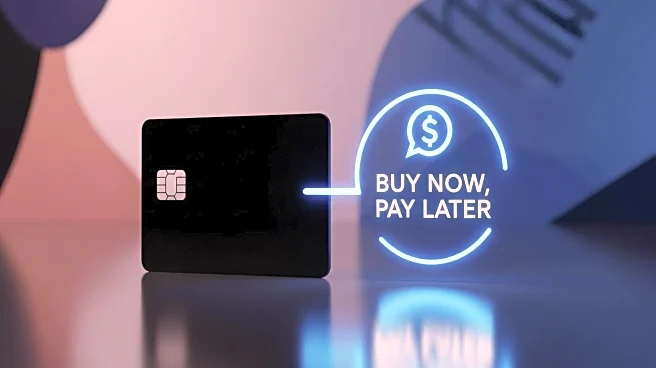What's Happening?
Klarna, a Stockholm-based financial technology company, has launched its initial public offering (IPO) on Wall Street, marking a significant milestone in the buy now, pay later (BNPL) sector. The company, known for allowing consumers to pay for purchases in four interest-free installments, sold 34.3 million shares at $40 each. This move aims to create a liquid market for the stock and raise $200 million for corporate purposes. Klarna has rapidly expanded its presence in the U.S. since entering the market in 2019, partnering with major retailers like Walmart. The BNPL model is gaining traction among younger consumers who are increasingly dissatisfied with high APRs and fees associated with traditional credit cards.
Why It's Important?
The IPO of Klarna highlights a growing trend in the U.S. financial landscape, where consumers are shifting away from credit cards towards alternative payment methods. This change is particularly significant in a market historically dominated by credit card usage. Klarna's approach offers a consumer-centric alternative, potentially reducing the $254 billion in interest and fees collected by credit card companies annually. Retailers benefit from increased sales and access to new customer segments, while consumers enjoy more affordable payment options. The success of Klarna's IPO could encourage further adoption of BNPL services, impacting the credit card industry and reshaping consumer spending habits.
What's Next?
As Klarna continues to expand its footprint in the U.S., it may face scrutiny over the potential risks associated with BNPL services, such as encouraging overspending. However, Klarna's executives argue that their model is a safer alternative to credit cards. The company plans to leverage its IPO proceeds to enhance its services and reach more consumers. The broader financial industry may see increased competition as other BNPL providers seek to capitalize on this growing market. Regulatory bodies might also take a closer look at BNPL practices to ensure consumer protection.









